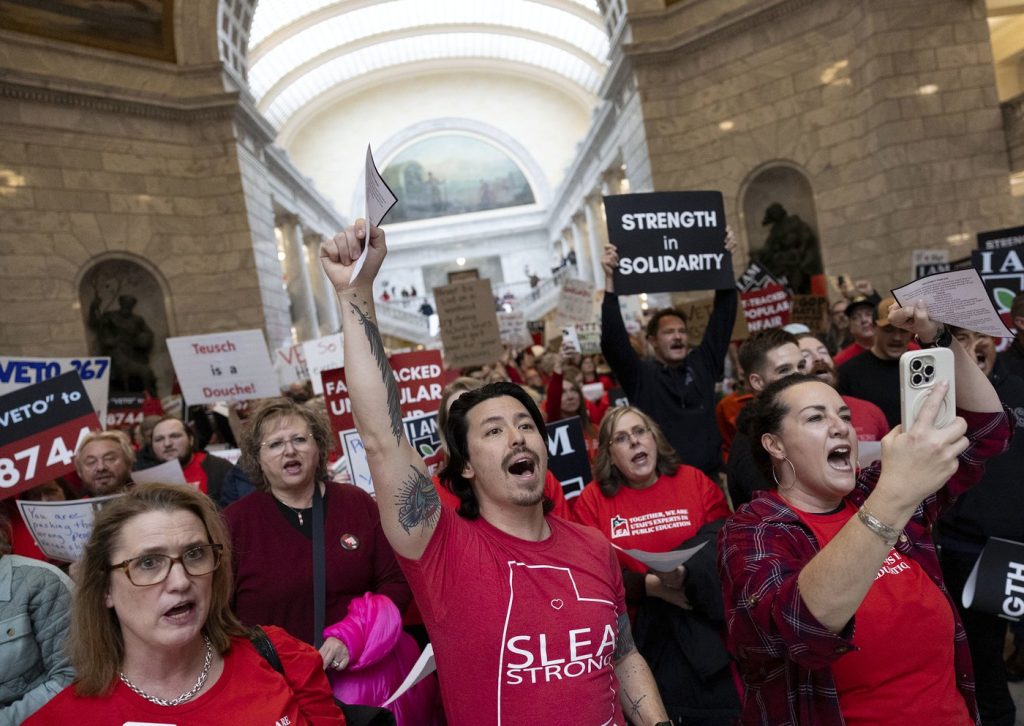SALT LAKE CITY (AP) — On Friday, Utah’s Republican Governor, Spencer Cox, signed a controversial collective bargaining ban that has drawn widespread criticism for being one of the most restrictive labor laws in the United States. The law will take effect on July 1, and it prohibits unions representing public employees, including teachers, firefighters, police officers, and transit workers, from negotiating on their behalf regarding wages and working conditions.
Despite significant opposition from union members and various stakeholders, Gov. Cox made his decision public after a week of demonstrations outside his office. Thousands of union members from both public and private sectors rallied to encourage him to veto the legislation. The bill had passed through the Republican-controlled Legislature by a narrow margin following the abandonment of a proposed compromise that would have moderated the outright ban.
In a statement released with the announcement of his signature on the bill, Gov. Cox expressed disappointment that the legislative process failed to yield a compromise that had previously garnered some level of acceptance among stakeholders. The measure's passage did not achieve veto-proof margins, indicating that had Cox chosen to veto it, supporters would have needed additional votes to counter his decision effectively.
Labor expert John Logan from San Francisco State University highlighted that with this law, Utah joins North Carolina and South Carolina as the states with some of the most restrictive regulations against public sector unions. Many educators, who are prominent users of collective bargaining, perceive the law as a tactic by Republicans to diminish the political clout of teachers' unions while paving the way for their own educational policies.
The sponsors of the legislation argued that it was crucial for employers to interact directly with employees rather than through union representatives. In response, the Utah Education Association, the largest public education employees’ union in the state, issued a statement condemning Gov. Cox for ignoring the voices of the thousands who opposed the bill. They are also considering a ballot referendum to potentially reverse the legislation, although they acknowledge that such an initiative would be financially challenging.
The Utah Education Association stated, “Despite overwhelming opposition, Governor Spencer Cox and the Legislature ignored the voices of thousands. This is a blatant attack on public employees and our right to advocate for the success of our profession and students.”
Moreover, the governor's announcement occurred within a broader national context, as former President Donald Trump has been working to significantly diminish the capabilities of the U.S. Education Department through budget cuts and pressures on employees to resign. Alongside the collective bargaining ban, Gov. Cox also enacted a bill restricting transgender college students from living in dorms that align with their gender identity.
This new regulation dictates that students at Utah’s public colleges and universities may only access or reside in gender-specific spaces, such as dormitory buildings, locker rooms, or bathrooms, that corresponds to their sex assigned at birth. This measure represents the first explicit restriction targeting university housing for transgender individuals, despite some states having broader implications covering various facilities.










